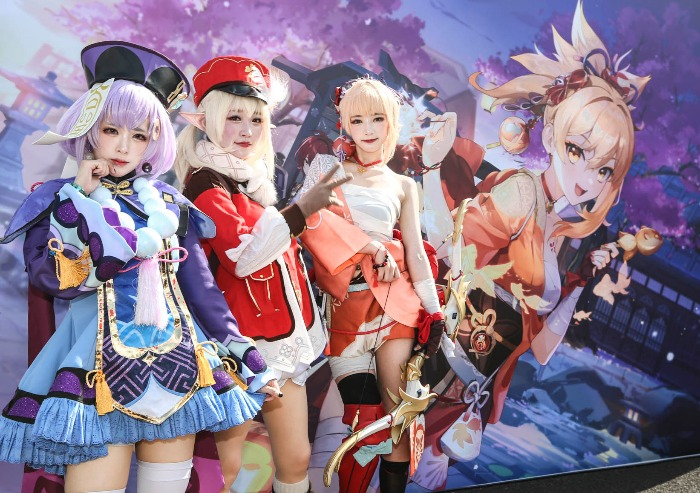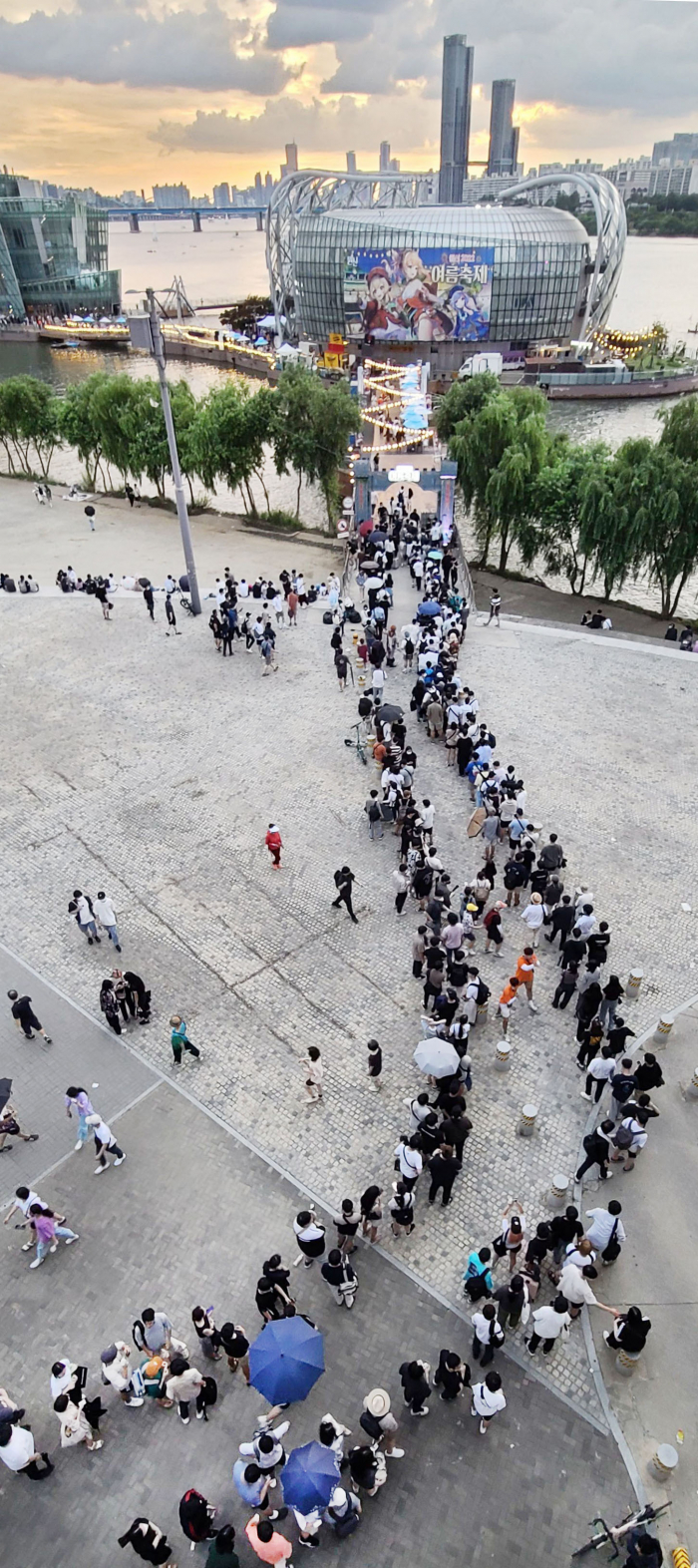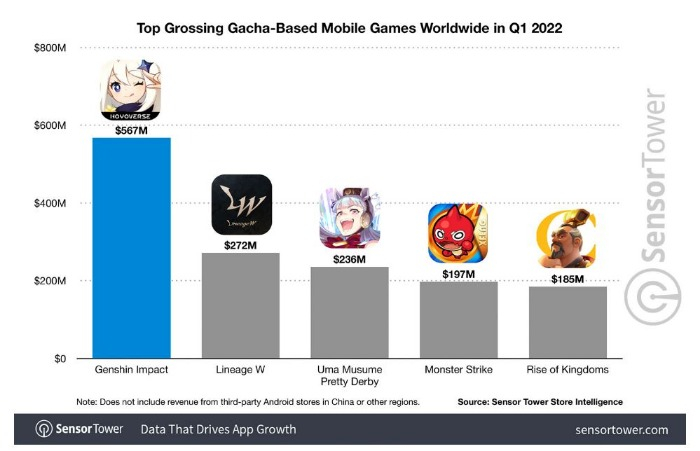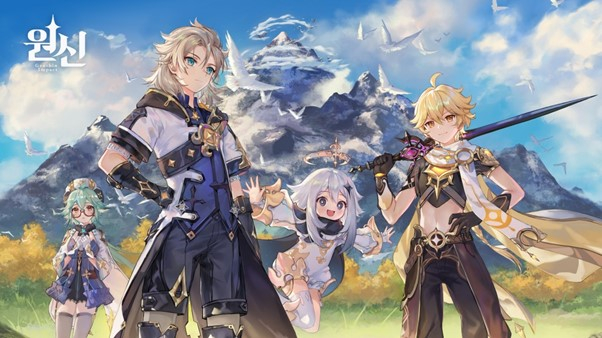Chinese game Genshin Impact's summer fest draws large crowds in Seoul
'It is time for the South Korean game developers to ask themselves if they’ve made a product like Genshin,' said an industry insider
By Aug 03, 2022 (Gmt+09:00)
LG Chem to sell water filter business to Glenwood PE for $692 million


Kyobo Life poised to buy Japan’s SBI Group-owned savings bank


KT&G eyes overseas M&A after rejecting activist fund's offer


StockX in merger talks with Naver’s online reseller Kream


Mirae Asset to be named Korea Post’s core real estate fund operator



Shanghai-based game developer and publisher miHoYo Co. on Wednesday wrapped up its well-attended week-long Genshin 2022 Summer Festival in Seoul.
As of the end of last weekend, the Chinese company said some 15,000 people had taken part in the event. Including the following three days, the number is projected to be much higher.
Industry insiders are paying attention to the fact that South Korean game enthusiasts showed up in higher-than-expected numbers to an offline event hosted by a Chinese gaming company.
THE MOST SUCCESSFUL ‘COPYCAT’
Genshin Impact is an action role-playing game released for Microsoft Windows, PlayStation 4, iOS, and Android in 2020.
The game was also released on PlayStation 5 last year and is slated to be available on Nintendo Switch.
Genshin Impact takes place in the fantasy world of Teyvat, home to seven distinct nations.
Only three of the seven nations have been revealed, each with its own distinct element and ruled by a different god. New stories and characters come with each new map.
The story follows the Traveler, who has traveled across the world in search of two siblings.

In the early days, the game was criticized for bearing much resemblance to The Legend of Zelda: Breath of the Wild.
The 2017 action-adventure game was developed and published by Japan's Nintendo for the Nintendo Switch and Wii U consoles.
The games share uncanny similarities such as the cartoon rendering technique, as well as the style of in-game interaction and fighting methods.
Studio miHoYo has been adamant that the visuals of Genshin were inspired by, but did not copy, that of the Nintendo game.
Fast forward to 2022, it is popular not only in China but also in the United States, Japan and South Korea.

While the publisher does not release its revenue, market research firm Sensor Tower said Genshin Impact had surpassed $3 billion in global lifetime player spending across the App Store and Google Play since its official launch on September 28, 2020.
The research firm’s Store Intelligence data shows that following the game’s worldwide release, the title took 171 days to generate its first $1 billion in mobile sales, not including spending through third-party Android stores.
The game has averaged revenue of $1 billion every six months, and Sensor Tower touted it as one of the most successful mobile games of all time.
COLLABORATION OVER COMPETITION
What sets the game apart is that players do not compete against each other.
The game’s main source of revenue is much like other mobile games, the money spent on characters and weapons. But there is no player versus player (PvP) aspect to the game -- gamers do not compete against each other.
In the multiplayer mode, the gamers are collaborating, rather than competing against each other, to catch a Boss monster or find a treasure chest.
A player can attain enough coins within the game to get to the mirror puzzle, which is the end content for Genshin Impact.

So then what prompts users to spend money on the title's platform?
The spending is purely to get the characters they want.
The Shanghai-based game developer is constantly creating stories and video content to further educate users about the in-game characters to develop a sense of kinship to and breed familiarity with the fictional characters.
In the Korean version, the company dubbed all the major lines in Korean by hiring top voice actors.
CHINESE GAMES’ RAPID RISE
The success of Genshin Impact should serve as a wake-up call to the South Korean gaming industry.
In South Korea, games that stir up competition among players to rake in money have been the most popular in recent years.
On multiple occasions, game developers merely did a "copy and paste" of successful games’ business models.
“While inducing competition can lead to monetary gains in the short term, the game will not be popular for long as new players would be hesitant to join," an industry insider told The Korea Economic Daily. “It is time for the South Korean game developers to ask themselves if they’ve made a product like Genshin Impact, in which users would voluntarily spend money without feeling the pressure to do so just to advance to the next level.”
The industry consensus is that the Chinese game developers’ technology is now on par with Korean companies'.
Beijing’s tightened grip on the gaming industry has forced Chinese developers to transform their products to attract users abroad and to experiment with different profit models, as in the case of Genshin.
“While the Chinese game developers trailed Korean companies in terms of not only the technology but also in storytelling, production and management in the past, that is no longer the case,” a game developer said.
The industry insider added: “Korean game companies will not be able to avoid competition from Chinese makers in the global arena.”
Write to Seung-Woo Lee at leeswoo@hankyung.com
Jee Abbey Lee edited this article.
-
 Korean startupsCorporate Korea pumps the brakes on developer pay hikes
Korean startupsCorporate Korea pumps the brakes on developer pay hikesAug 01, 2022 (Gmt+09:00)
4 Min read -
 Korean gamesNew Delhi blocks Krafton’s Battle Ground Mobile India
Korean gamesNew Delhi blocks Krafton’s Battle Ground Mobile IndiaJul 31, 2022 (Gmt+09:00)
2 Min read


